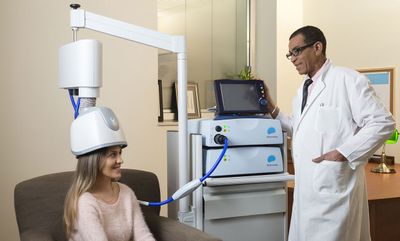
Image Source: Google
Obsessive-Compulsive Disorder (OCD) is a debilitating mental health condition that affects millions of people worldwide. It is characterized by intrusive thoughts (obsessions) and repetitive behaviors or mental acts (compulsions) that are performed in response to these thoughts. For individuals living with OCD, finding effective treatment options is crucial for managing symptoms and improving their quality of life.
This is where clinical trials play a significant role in advancing our understanding of the disorder and developing new interventions. Navigating the maze of OCD trials can be overwhelming for both patients and researchers, but with the right guidance and information, it is possible to find the right study or collaboration that meets the needs of all parties involved. Refer: https://ocdtrials.com/
For patients interested in participating in OCD trials, it is important to start by discussing the option with a mental health professional. Your therapist or psychiatrist can provide valuable insights on the potential benefits and risks of participating in a clinical trial and help you determine if it is the right choice for you. They can also refer you to reputable research institutions or organizations that conduct OCD trials. Additionally, doing thorough research on your own can help you understand the different types of trials available, such as medication trials, therapy trials, or brain stimulation trials, and what each entails.
When considering participating in an OCD trial, it is essential to carefully review the eligibility criteria. Each study has specific inclusion and exclusion criteria that determine who can participate. Factors such as age, gender, severity of symptoms, and previous treatment history may be taken into account. By understanding these criteria upfront, you can save time and effort by focusing on trials that align with your profile. Furthermore, it is crucial to ask questions about the study protocol, duration, required visits, potential side effects, and any compensation or benefits offered to participants. Being well-informed can help you make an informed decision and feel more confident about your involvement in the trial.
For researchers conducting OCD trials, collaboration and communication are key to navigating the complexities of clinical research. Building partnerships with mental health professionals, patient advocacy groups, and research institutions can help identify potential participants and ensure the success of the trial. By engaging with the OCD community, researchers can gain valuable insights into the lived experience of individuals with the disorder and tailor their studies to address specific needs and challenges.
Designing an OCD trial requires careful planning and adherence to ethical guidelines to ensure the safety and well-being of participants. Researchers must obtain approval from institutional review boards (IRBs) and follow strict protocols for recruitment, informed consent, data collection, and analysis. Transparency and integrity are essential in clinical research to maintain trust and credibility within the scientific community and among participants.
Collaborating with multidisciplinary teams can enhance the quality and impact of OCD trials. By involving experts in psychiatry, psychology, neuroscience, and other relevant fields, researchers can gain diverse perspectives and expertise that can lead to innovative approaches and breakthrough discoveries in OCD treatment. Additionally, engaging with pharmaceutical companies, medical device manufacturers, and other industry partners can help bridge the gap between research and commercialization, leading to the development of new therapies and interventions for individuals with OCD.
As the field of OCD research continues to evolve, leveraging technology and data analytics can revolutionize the way clinical trials are conducted and outcomes are measured. Virtual trials, telemedicine, wearable devices, and mobile apps offer new opportunities for remote monitoring, data collection, and personalized interventions for individuals with OCD. By harnessing the power of technology, researchers can overcome barriers such as geographical limitations, access to specialized care, and stigma associated with mental health conditions.
Ultimately, navigating the maze of OCD trials requires a collaborative effort between patients, researchers, healthcare providers, and industry stakeholders. By working together towards a common goal of advancing our understanding of OCD and improving treatment options, we can make a meaningful impact on the lives of individuals affected by this challenging disorder. Whether you are a patient seeking innovative therapies or a researcher exploring novel interventions, embracing the complexities of OCD trials with dedication, empathy, and perseverance can lead to transformative outcomes for all involved.